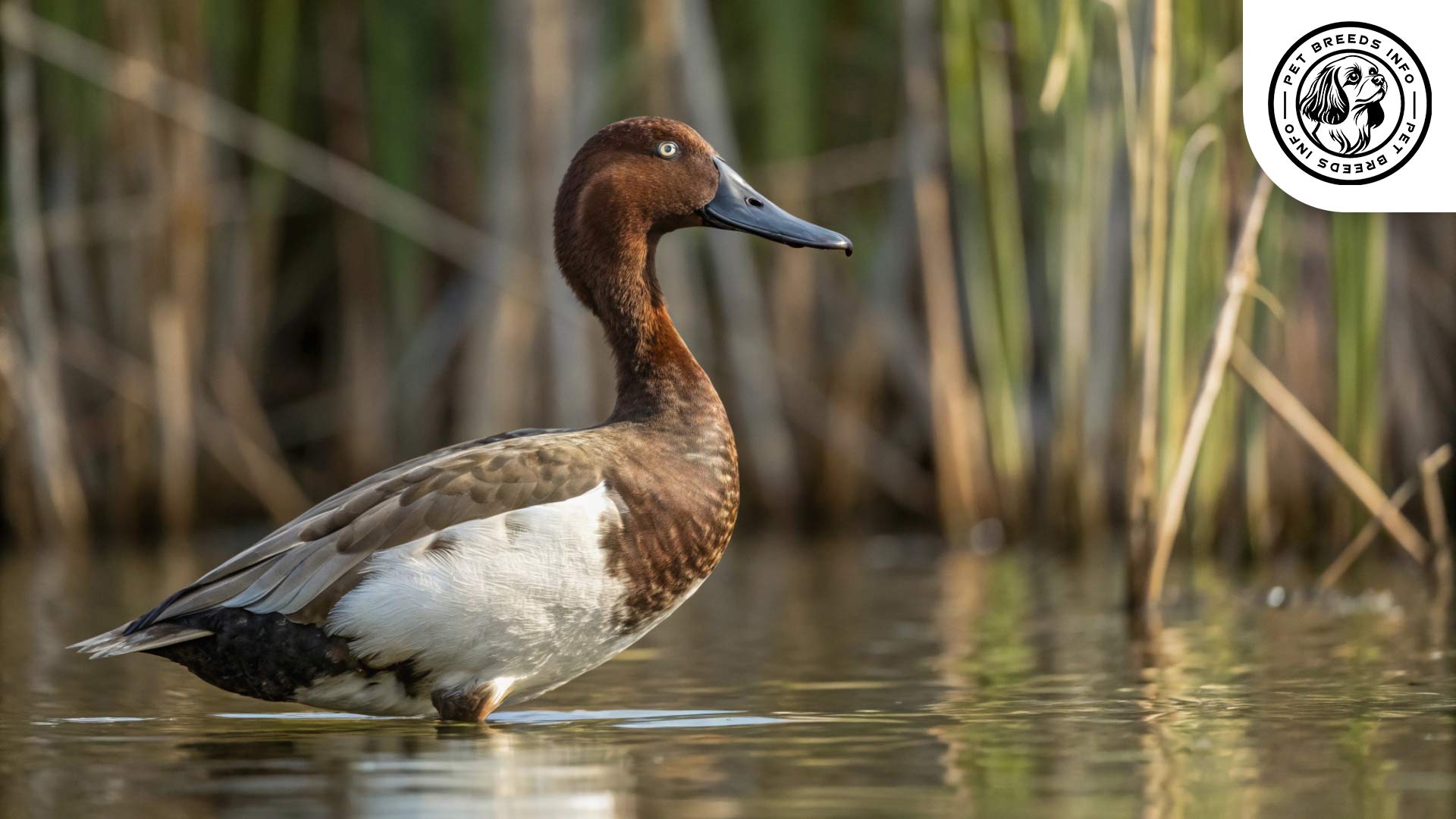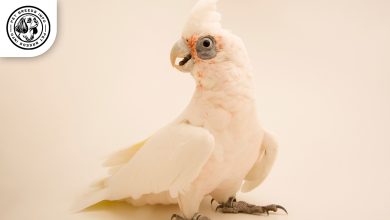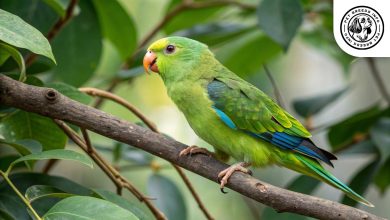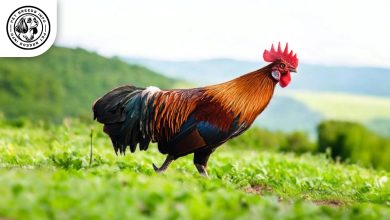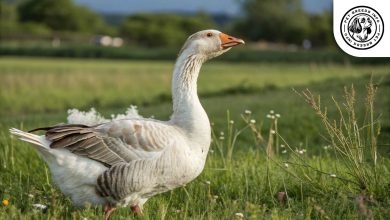Hook Bill Duck Breed: Personality, Lifespan, Food & Care
General Introduction of the Breed
The Hook Bill Duck, also known as the Hookbilled Duck, is one of the oldest domestic duck breeds. It originated in the Netherlands and has been bred for centuries due to its unique appearance and excellent foraging abilities. The breed was primarily used for egg production and pest control in farms and waterways.
Table of Contents
| Common Name: | Hook Bill Duck, Hookbilled Duck |
| Scientific Name: | (Not explicitly mentioned in the text) |
| Origin: | Netherlands |
| Size: | Males: 4-5 pounds (1.8-2.3 kg), Females: 3.5-4.5 pounds (1.6-2 kg) – Medium-sized breed |
| Lifespan: | 10-12 years |
| Talking Ability: | (Not applicable to ducks) |
| Colors: | White, dusky, pied, and gray |
| Noise Level: | Relatively quiet compared to other ducks |
| Social Behavior: | Not extremely social but forms strong bonds with owners if raised in a caring environment; generally friendly towards other ducks and flocks with proper socialization; requires proper socialization to get along with humans and other pets. |
Physical Characteristics
The Hook Bill Duck is a medium-sized breed with males typically weighing around 4-5 pounds (1.8-2.3 kg) and females slightly lighter at 3.5-4.5 pounds (1.6-2 kg). Its most distinctive feature is its downward-curved bill, which sets it apart from other duck breeds.
The breed has a short, sleek coat that is relatively easy to maintain. Common color variations include white, dusky, pied, and gray. Their eye color usually varies between brown and dark hazel.
The Hook Bill has an elongated body, a slightly arched neck, and moderately sized, slightly backward-oriented wings. Their legs are sturdy and of medium length, contributing to their excellent foraging skills.
Read More: Wyandotte Chicken
Personality and Temperament
Hook Bill Ducks are highly intelligent and independent birds. They are known for being excellent foragers, making them a great choice for free-range environments. Although not extremely social, they do form strong bonds with their owners if raised in a caring environment.
They have a moderate energy level, preferring to forage and explore rather than sit still. They are generally friendly towards other ducks and flocks but require proper socialization to get along with humans and other pets.
Due to their calm and adaptive nature, they can thrive in various environments, but they do best with access to water and open spaces. They are relatively quiet compared to other ducks, making them a good choice for farms and households with space constraints.
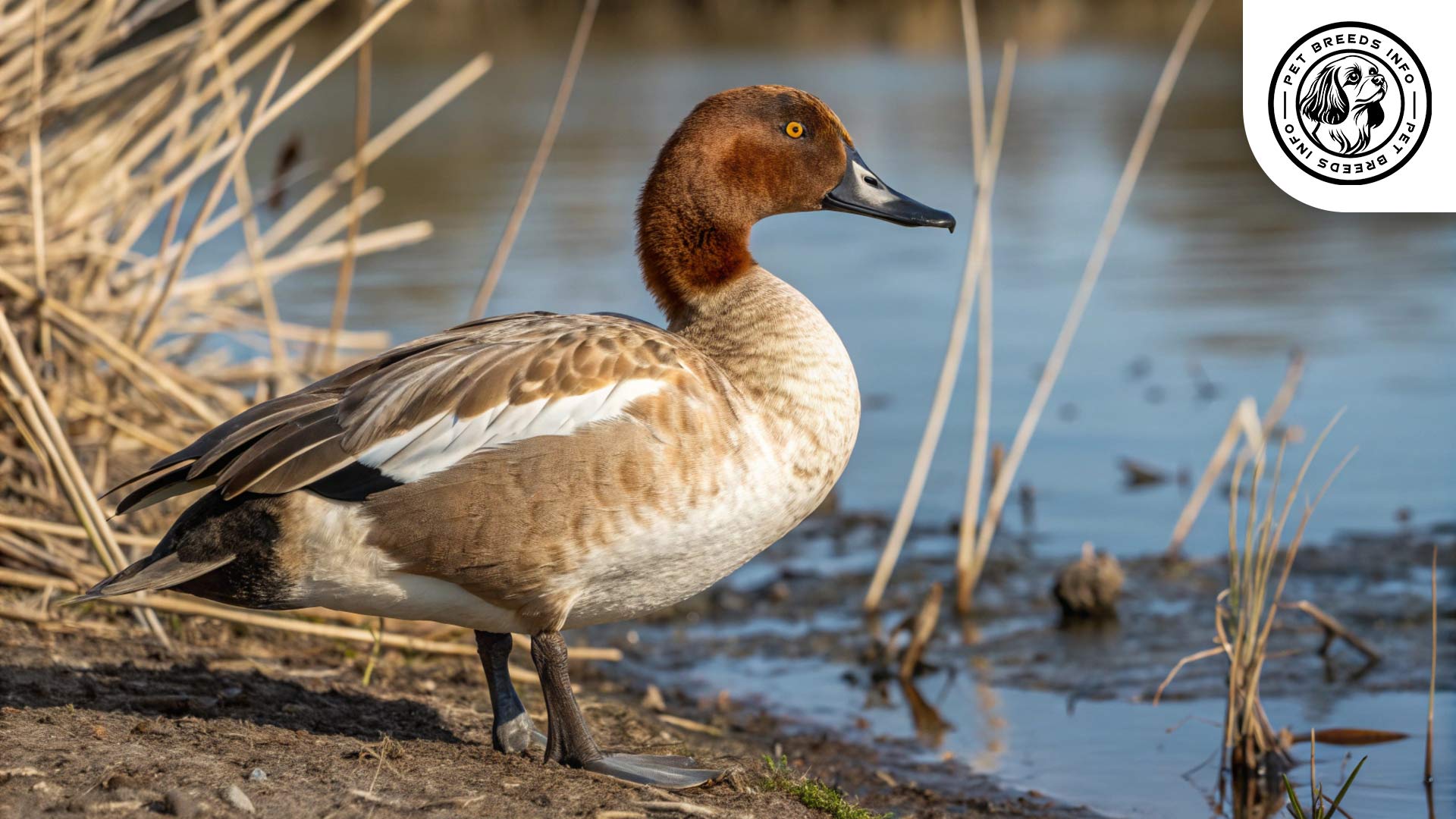
Care and Maintenance Requirements
Hook Bill Ducks require outdoor space where they can freely forage. They prefer environments with ponds or pools where they can swim. While they can adapt to enclosed spaces, free-range areas are ideal for their well-being.
Their grooming needs are minimal as their plumage naturally repels water and dirt. However, providing access to clean water for regular bathing is necessary to maintain their feather health.
These ducks are hardy but may need extra protection in extreme cold conditions. Ensuring well-ventilated but insulated housing is essential in colder climates. Routine nail trimming is seldom required since their active foraging naturally wears down their nails.
Diet and Nutrition
The Hook Bill Duck thrives on a natural diet of grains, greens, and insects. A balanced diet should include high-quality duck feed supplemented with fresh vegetables and occasional protein sources such as mealworms.
Foods like chocolate, avocado, processed grains, and salty snacks should be avoided as they can be toxic to ducks.
They should be fed twice a day with a regular supply of clean water to aid digestion.
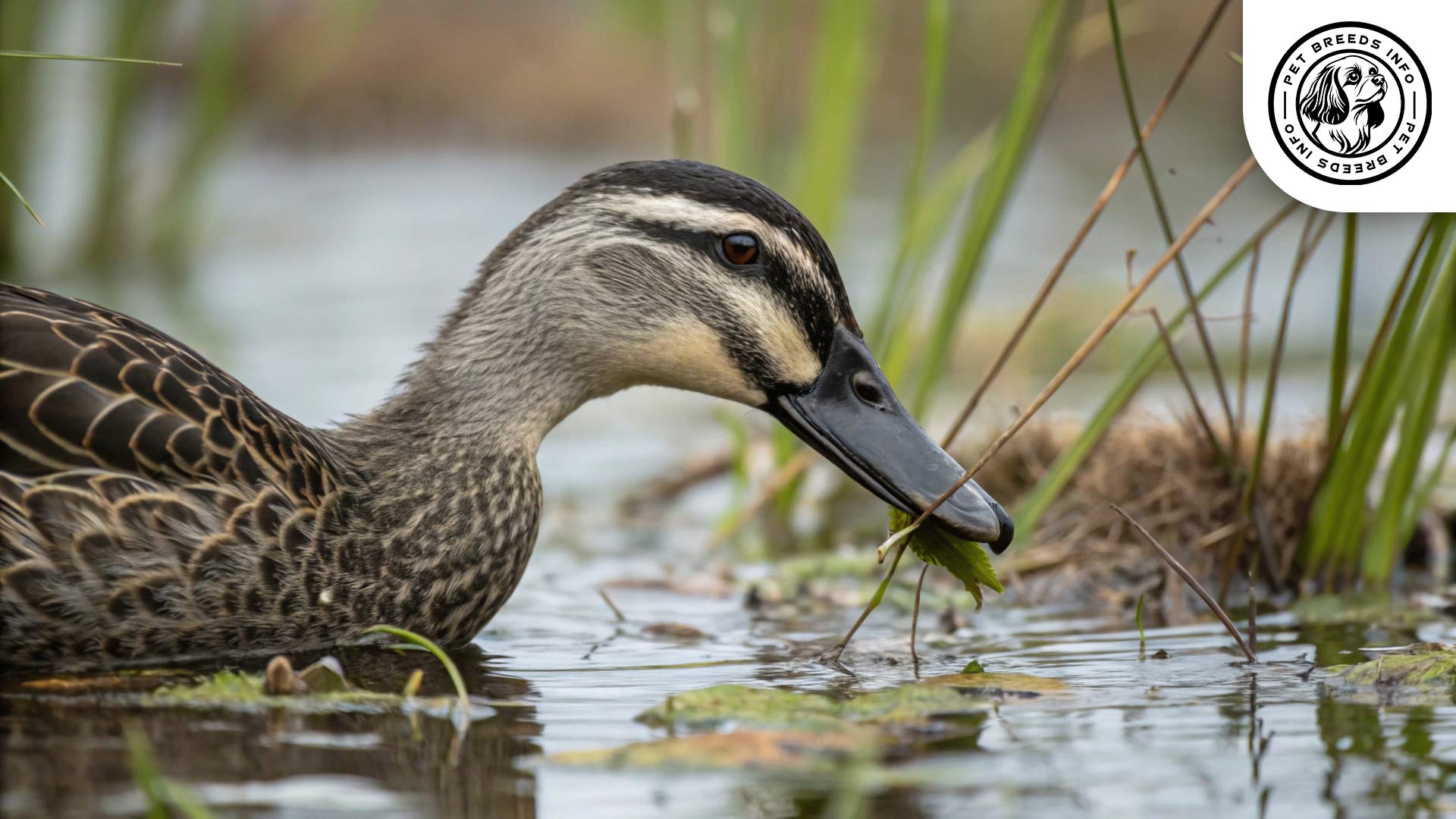
Health and Common Medical Issues
Hook Bill Ducks are generally robust and healthy birds. However, they can be prone to common waterfowl ailments such as respiratory infections, leg issues due to improper diet, and external parasites if raised in unhygienic conditions.
With proper care and nutrition, they can live for 10-12 years. Routine vaccinations and periodic check-ups with a vet are recommended to prevent diseases.
Read More: Senegal Parrot Bird
Training and Behavior Management
Although not traditionally trained like dogs, Hook Bill Ducks can learn to respond to familiar human voices and routines. They benefit from early socialization, which helps them become more comfortable around humans.
Providing positive reinforcement in the form of treats and a consistent daily routine is the best way to encourage good behavior.
Interaction with Other Animals and Humans
The breed gets along well with other ducks and poultry but may show some initial wariness toward unfamiliar animals. They are not aggressive but thrive best in a peaceful flock environment.
They can coexist with children and families, provided they are given space and respect. Because they are foragers, they are better suited for homes with enough outdoor space.
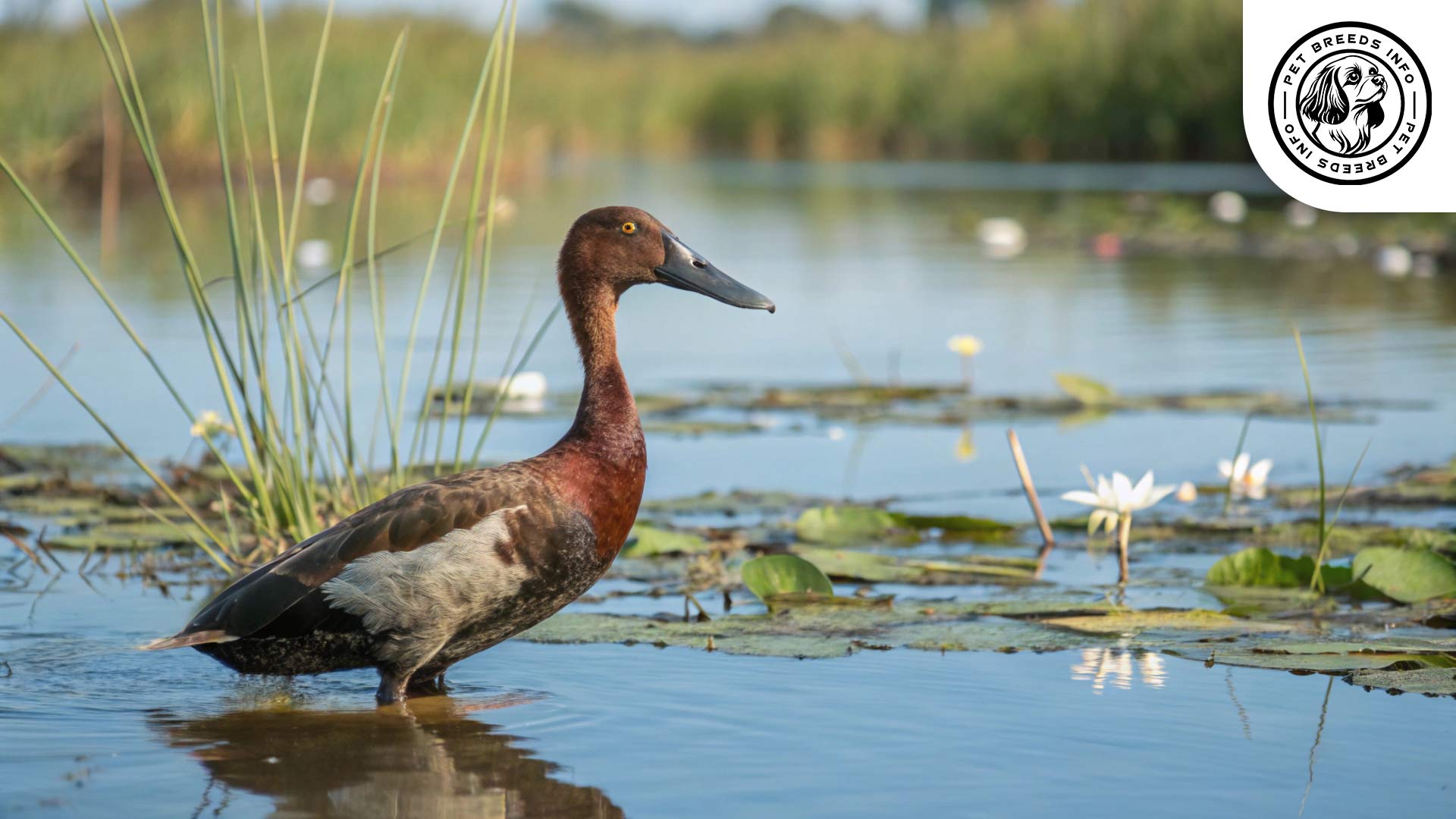
Price and Availability
The price of a Hook Bill Duck varies based on breeding quality and location, typically ranging between $20-$50 per duck. Due to their rarity, they may be harder to find compared to more common domestic duck breeds.
It is advised to adopt or purchase from reputable breeders who specialize in waterfowl breeding to ensure a healthy bird.
Conclusion and Final Thoughts
The Hook Bill Duck is a unique and historically significant breed that is well-suited for those looking for a low-maintenance, independent, and efficient foraging bird. They are ideal for farms, homesteads, or backyard environments with ample space for free-ranging.
Before acquiring a Hook Bill Duck, potential owners should consider their need for outdoor access, fresh water sources, and appropriate flock companionship. Overall, they are a rewarding breed known for their distinctive appearance and practical benefits in pest management and egg production.
Read More: Red Canary Bird
FAQ
What is the most distinctive feature of the Hook Bill Duck?
The downward-curved bill.
Are Hook Bill Ducks good for free-range environments?
Yes, they are known for being excellent foragers.
How much space do Hook Bill Ducks need?
They require outdoor space where they can freely forage, preferably with access to water.
What is the typical lifespan of a Hook Bill Duck?
They can live for 10-12 years with proper care.
Are Hook Bill Ducks noisy birds?
No, they are relatively quiet compared to other duck breeds.
